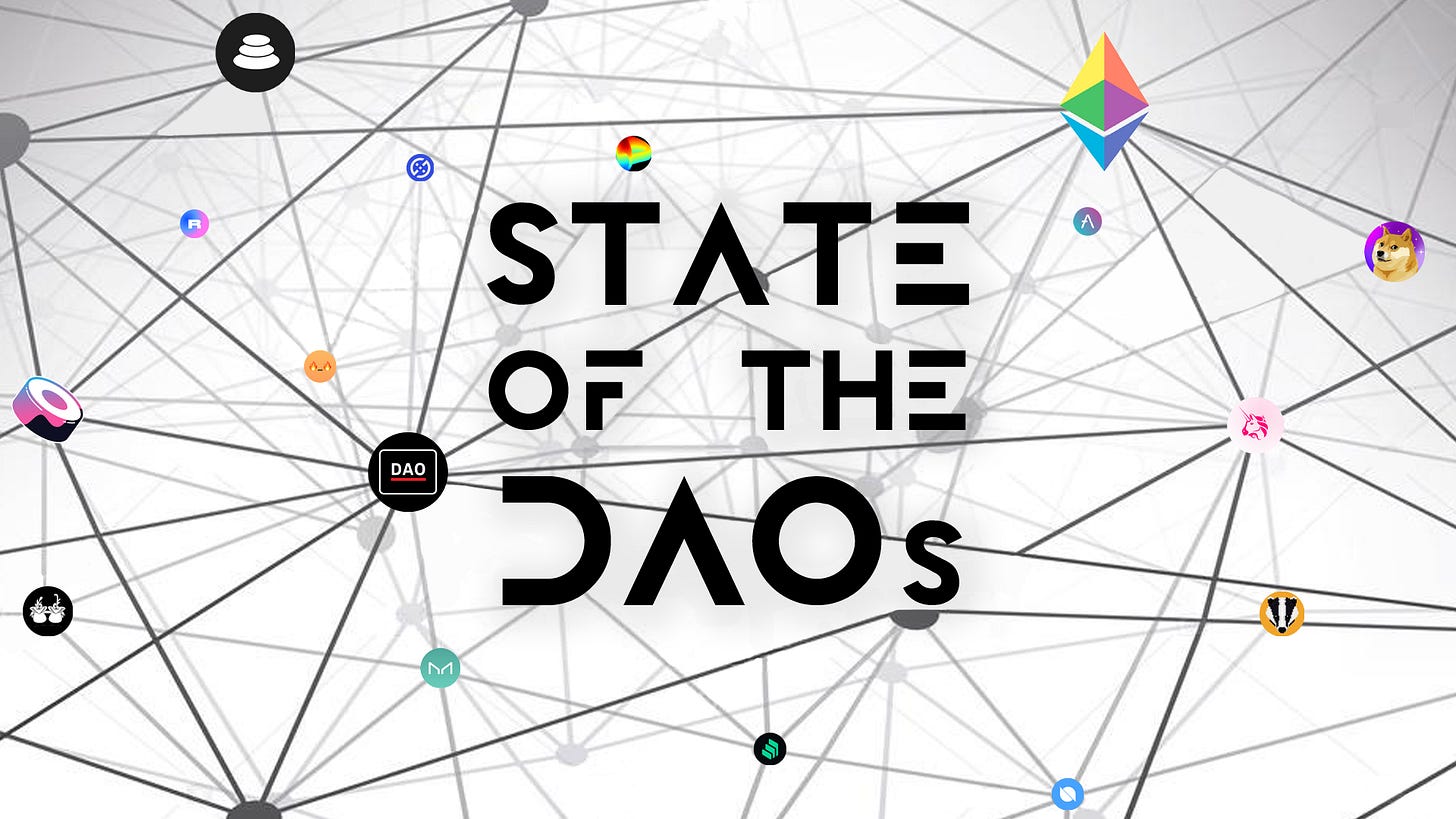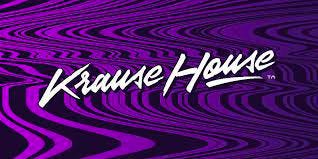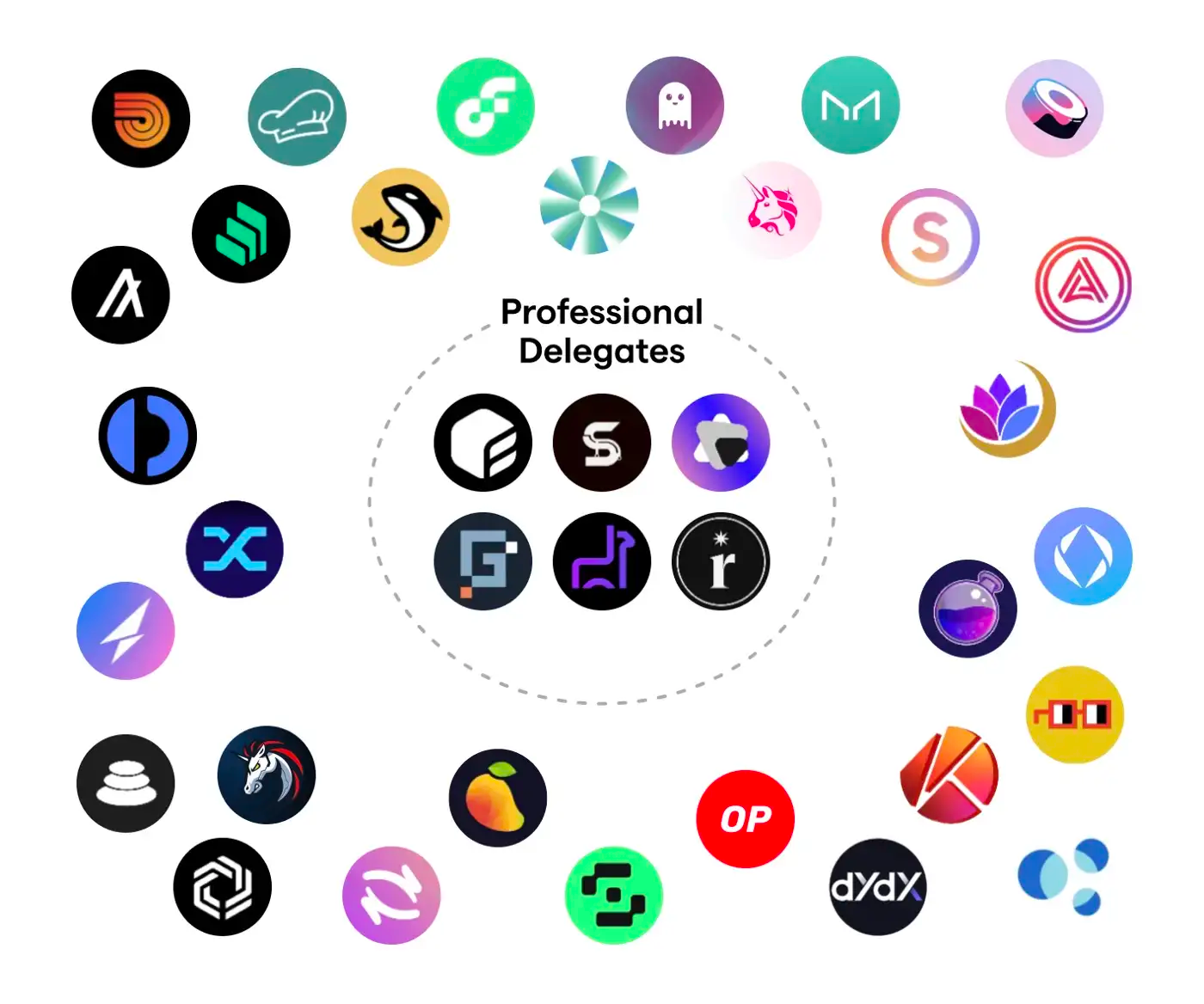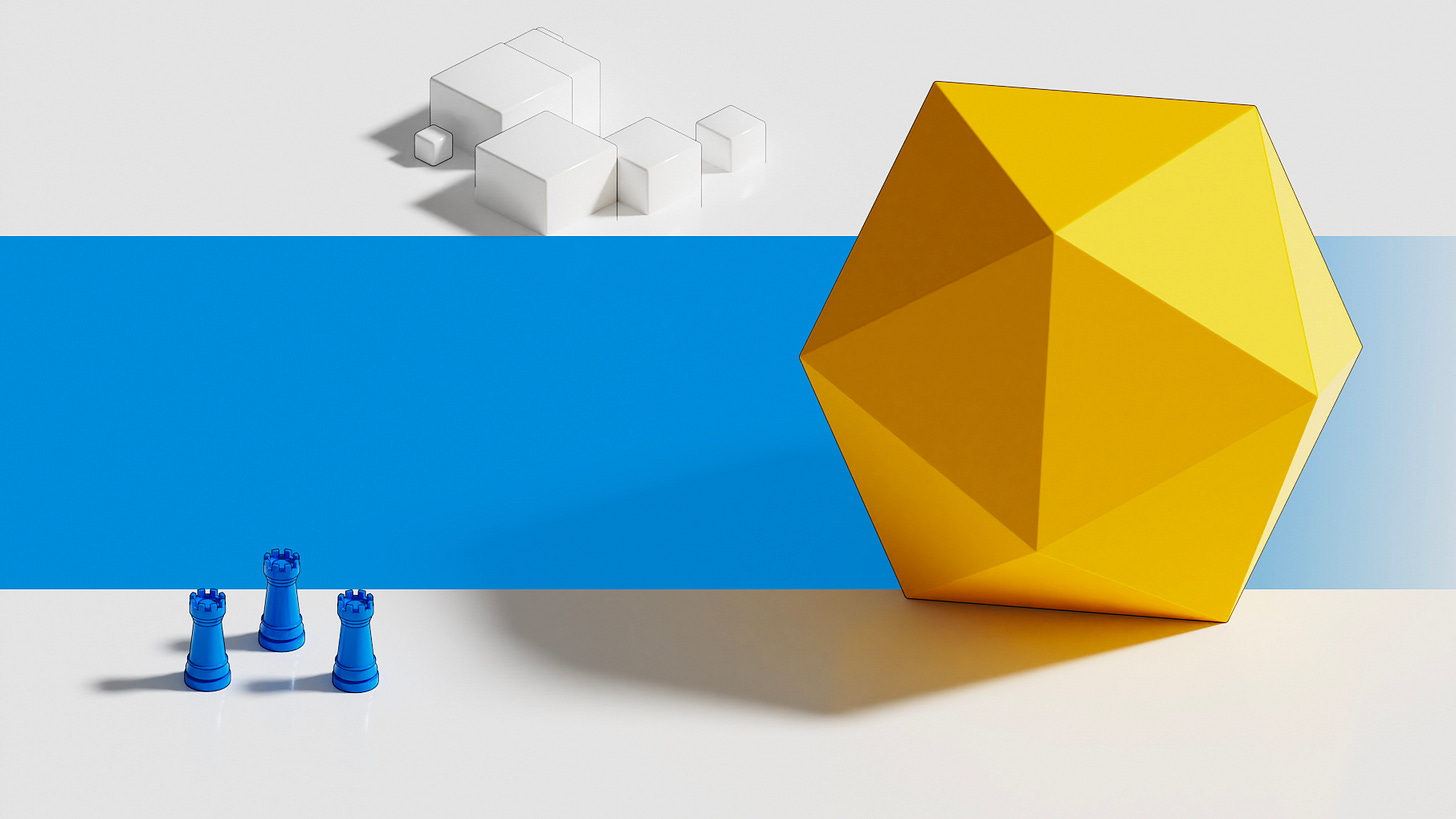DAOs Are Reimagining the Social Landscape | State of the DAOs
You're reading State of the DAOs, the high-signal low-noise newsletter for understanding DAOs.
gm and welcome to State of the DAOs!
Let’s face it, the web2 social landscape is pretty miserable. Built on platforms like Facebook and Twitter, it hasn’t lived up to its promise of bringing communities together and fostering connection.
Instead of creating vibrant spaces where we feel safe and secure, where there is a shared sense of belonging and kinship, web2 social platforms are algorithmically driven to divide, to amplify uncertainty, and to undermine deep connection and purpose.
This is not the internet we signed up for.
Rather than being at the mercy of profit-driven code, we can use emerging technology to reimagine the social landscape and get back to the fundamental principles that create a rich social life. The blockchain gives us this opportunity.
The web3 social landscape is built around purpose and identity. This week, theconfusedcoin walks us through that landscape, both at the community and protocol level.
First, we take a look at the way web3 communities like FWB, Cabin DAO, and Krause House are forming around a shared purpose and working together to build something remarkable. Next, we take a look at the protocol layer, which gives individuals control over their information, content, and social graph. Between the emergence of purpose aligned communities and ownership over our reputation and identity, it is easy to see how web3 social will be much more healthy and fulfilling.
Finally, we share the TL;DR on some most recent DAO ecosystem takes and thought pieces, making it easy for you to cut through the noise and learn everything you need to know about the current state of the DAOs.
Contributors: BanklessDAO Writers Guild (theconfusedcoin, Warrior, angelspeaks, 0xzh, ximpli_ana, Lanksss, HiroKennelly, siddhearta)
This is the official newsletter of BanklessDAO. To unsubscribe, edit your settings.
DAOs Are Reimagining the Social Landscape
Author: theconfusedcoin

Social media is not what it set out to be. When Mark Zuckerberg launched Facebook in 2004 it was for the purpose of connecting students to one another. Today’s ad-driven, algorithmically controlled social media has created a social space where different opinions are ridiculed and attacked, materialistic wealth is glamorised, and creators are exploited, all in the name of clicks and profit. Displaying your talent or opinions online doesn’t feel safe anymore and even when doing that leads to success, you’re never given your fair share for the content you create.
This is not what we signed up for.
The social landscape needs to change. Web3 gives us hope, as two of the biggest opportunities in web3 are to change the way communities are formed and the platforms we use to come together.
Social DAOs: Redefining Communities
There’s a popular saying in web3: “Come for the gains, stay for the community.” Despite all that’s gone wrong this past year in terms of scams and hacks, the sense of community people feel in this space is unparalleled.
With the advent of DAOs, it became possible to bring communities together around a shared purpose where each member feels a sense of responsibility for the welfare of the entire community. Suddenly, apart from having a community of like-minded people you could talk to, you also had the ability to help and contribute to the direction your community was going! This possibility led to the rise of social DAOs.
All DAOs rely on a community coming together to work towards a common purpose. This purpose can range from fighting climate change to building a decentralized media house. Some DAOs are formed with the primary aim of building a network, bringing people with similar interests like music or sport together. However, unlike any normal social group, web3 enabled the community to have an outsized impact in their areas of interest. Participation could be quantified and rewarded with greater reputation. The creation of social tokens allowed membership to have tangible value and also gave social DAOs the ability to raise funds to further the cause of their own ecosystem. Decentralization ensured that the group was not controlled by a few core members, which tends to happen in most normal social groups.
DAOs are adding another dimension to the social landscape and redefining how communities work together. Some of the trail blazers leading this change include Friends with Benefits, Krause House, and CabinDAO.
Friends With Benefits (FWB)
FWB was created with a mission of becoming a community for “creators, rebels, artists, thinkers, and doers” who want to shape the future of web3 and they have slowly become one of the most popular social DAOs. With a unique mix of flair and eccentricity, FWB has attracted some of the most talented people in the Web3 space.
This mix of artists, developers, and creators has led to the formation of many successful projects with the most popular one being their NFT art gallery. The creation of this gave members a chance to display their art to a wider audience and in turn led to some famous artists wanting to participate. Most recently, an NFT of the well-known punk rock band Pussy Riot was put up for sale. The winning bid for the NFT, titled “Drink My Blood”, sold for a whopping 89.69 ETH (approximately $109,000).

FWB also hosts a number of fiat-space events for its members, giving people a chance to connect and collectively enjoy the success of the DAO. The latest event was held in Idyllwild Arts Academy, a private high school on a sprawling campus in the woods in California. A series of talks were hosted and the attendees also saw live performances from artists like Sudan Archives and James Blake.


When FWB started, the only criteria to become a member was to hold 75 FWB tokens. However, due to its increasing popularity, the requirements were changed to include a formal application that needs to be submitted by anyone who’s interested in joining. FWB reviews the application and then confirms if the applicant is approved. After this process, 75 FWB tokens can be purchased to complete the membership. At the time of writing, one FWB token is $8, so the membership will cost you about $600.
This might seem eerily similar to Soho House, so what’s the difference? Unlike a club membership, DAO members come together to launch new projects that benefit both themselves and the DAO. Decisions on how to utilize the treasury are taken collectively, which gives one a sense of belonging and purpose – just the thing currently missing in most social groups.
Krause House
Just like FWB brought creators and artists together, Krause House is doing something similar for sports enthusiasts - particularly basketball. Created with a dream of one day owning an NBA team, Krause House has made significant strides in that direction.
Fans are what ultimately make a great sports club. Since the dawn of time, fans have formed social groups and come together to support their club, but they have never received any economic benefits nor have they ever had any direct impact on their team’s operational decisions. DAOs make this possible. For the first time, fans can have fractional ownership of the club they love and actually be involved in decision-making processes. As an ardent sports enthusiast myself, there’s nothing more satisfying.
We can see this in action as Krause House DAO has recently purchased a basketball team in Ice Cube’s Big 3 league. The league is made up of retired NBA and international basketball players who compete in a 3 on 3 game of basketball. This is a significant moment and even though the league is not organized, the thought of a bunch of enthusiasts owning a sports team is mind-boggling - and exciting.


To become a member of Krause House you need to purchase their membership NFTs. There are three tiers at various price ranges and each tier comes with a set of perks which include access to a private Discord, tickets for matches and real life events, access to future NFT drops, and a lot more. Governance, however, is restricted to holders of the $KRAUSE token which was distributed to holders of the sold-out genesis NFTs.
The way in which Krause House plans to buy an NBA team is fascinating. Their flightpaper outlines the various avenues they might follow, and is certainly worth a read. This is a social DAO to watch out for.
CabinDAO
CabinDAO is aiming to redefine our concept of cities by building a new version that involves creating “distinct physical location nodes tied together by a shared culture and governance structure.” Inspired by Balaji Srinivasan’s essay on The Local Stack, this DAO looks to separate cities into two distinct layers:
1. The hardware layer - land, buildings, infrastructure
2. The software layer - incorporation, governance, and social interaction
The idea behind this is that just like a computer, the same hardware can simultaneously run multiple software programs. This way if a group of people (a node) in the network doesn’t agree with decisions made by the rest, they can create a new virtual governance layer within the same physical network.
Similarly, just like the same software is compatible with multiple hardware specifications, if a group of people, this node, find the network unsuitable, they can easily dissociate and join another network without losing their structure.
The concept is a bit abstract, but CabinDAO is attempting to do this by building multiple remote neighborhoods where creators can live and work for an extended period and connect with like-minded people. Their first neighborhood was in Texas Hill Country near Austin and new ones have come up in Montaia Basecamp and Radish in the Bay Area, CA.


CabinDAO is looking to aggressively increase its existing infrastructure and is counting on its members to help quicken the process. The structure they aim to implement in a network is:
Neighborhoods: organizations that own and operate independent properties in the network
Residents: people who spend time living and working in the neighborhoods
Contributors: service providers that power the Cabin network and economy
The DAO structure enables community members to be rewarded for the work they put in to build and further this idea of a decentralized city. The litepaper also talks about issuing a “passport” in the form of an NFT that will allow holders to easily travel across the various nodes. A lot of the features listed in their roadmap are already out and the ecosystem is evolving rapidly. The vision is ambitious, but the community has repeatedly proven themselves and shown that CabinDAO is here to build.
Lens Protocol: Redefining Social Media
Social DAOs became popular amongst people interested in wanting to make an impact in certain niches. However, sometimes, people don’t want to commit to a specific cause and would rather just interact with people without any end goal.
Despite the obvious flaws, the long reach of web2 platforms and the sheer number of users has been difficult to replicate for Social DAOs. Due to limited competition, existing social media platforms like Twitter happily took advantage of this large audience and profited from the value created by members without giving them any share of the revenue. Communities could not be migrated to other platforms, as each was an ecosystem of its own that was incompatible with the other. This made us dependent on the whims, fancies, and economic models of each platform. We had no control over the future of the community we so painstakingly built. To change things at a macro rather than a micro level (achieved currently by Social DAOs), we needed to re-think the entire foundation upon which social media is built.
This is the next frontier of social, and it started with Lens Protocol.
What is Lens Protocol ?
Lens Protocol is leading the charge in developing a decentralized social identity and it is building the infrastructure that will make interoperability between different social platforms possible. Lens is looking to create a single social identity that can be used across various platforms that are part of their ecosystem. They are inviting protocols to build user-facing products using their technology and letting the user choose which protocol to use.
What is the Benefit ?
Unlike web2 platforms such as Twitter and Instagram, Lens users have the option of choosing what platform to use without the fear of losing their content and audience if they move. Currently, if you wanted to leave the Twitter ecosystem, you would lose all your followers and content and would have to build a social circle on another platform from scratch. Lens fixes this.
Social platforms today are siloed and any content you create on one platform does not automatically get reflected on others. By creating a single social identity, Lens will make it possible for content created by a user to be shared across all the protocols built on the Lens infrastructure.
How Are They Doing This?
Lens data — profiles, followers, content — are stored as NFTs on Polygon. These NFTs can be plugged into any dApp built within the ecosystem, such as Lenster, Orb, Lenstube, and Phaver.
Lenster is the most popular decentralized social media dApp built on Lens Protocol. It brings the familiar functionality of Web2 to Web3, with most of its features being similar to Twitter. The key difference with Lenster is that content is not moderated and your profile and followers from there can be transferred to any other dApp built on Lens.
The full list of dApps built on Lens can be found here.
You should also know there are a few other protocols like Lens: DeSo, Farcaster, and Orbis are attempting to do something similar and are worth checking out.
The Future of Social: Organized around Purpose and Impact
Boomers worked to survive; Gen X worked to improve their standard of living; Millennials worked to improve their quality of life; and now we find Gen Z working to find purpose and have an impact.
Social DAOs are enabling us to reimagine how communities come together in order to find this purpose. We have lost confidence in the current social platforms. Corporations have long profited from the creativity of artists and the passion of ardent believers. DAOs give us a chance to get back what is due to us: being part of a community and building our way towards a better future. Although the road to redemption is long, we have made a blazing start.
Actions steps
📖 Read The Status of Web3 Social | Donovan Choy
⛏️ Dig into Introducing Lens Protocol
🎧 Listen Green Pill 54 - Web3 Social with Stani Kulechov
Ecosystem Takes
🔥 and 🧊 insights from across the DAO ecosystem

Landscape of Professional Delegates: Next wave of DAO Governance
Author: Kohei.eth
🔑 Insights: DAO governance is increasingly complex and it can be challenging to create the engagement necessary to drive change. Delegating voting rights is one of the best solutions for a number of reasons:
Token holders who are unwilling to participate in DAO governance can delegate their voting rights to representatives called “Professional Delegates.” These delegates are mostly teams working under a brand or organization.
Professional delegates are necessary to maintain a continuous level of governance participation as the DAO can be vulnerable to governance attacks during periods of low participation.
The scope of governance activities can expand with time. An individual will have limited expertise in all aspects of DAO governance, requiring the presence of professional delegates.
Professional delegates accumulate credits as a brand or organization rather than as individuals. Therefore, the inaction of an individual in the organization or brand will not cause a loss of credit.
The Future Seed Club Sees
Author: Alex Stein
🔑 Insights: The founder of Ethereum, Vitalik Buterin, had the vision to replace humans coordination mechanisms with algorithms. This was to eliminate the coordination failures and create a system that can not be corrupted by centralized actors. While “code is law” works well at the protocol layer, most DAOs only partially share in this dream.
Over the past couple years, new organizations aimed at sharing value have begun to spring up. They are called Internet Native Organizations and are formed around communities of people who unite and collaborate online to create value in the real world. In order to create communities of lasting value, these organizations need to be a place people want to be and find ways that add value to the members. FWB believes these communities need need to focus on three key practices:
Highlight rituals that strengthen membership.
Host events that let members interact with the organization's product.
Share stories about the DAOs mission.
A few of the things we’re excited about in crypto
Authors: guywuolletjr, noahcitron, lera_banda, moodlezoup, josephbonneau, carrawu, blauyourmind
🔑 Insights: a16z released a few thoughts about what they see over the next year in crypto and how this could be blockchain’s “mobile moment.”
Most people throughout the world access the internet through their smartphone, and a large group of blockchain users rely on their smartphones as well.
Smartphones rely on centralized infrastructure, which is convenient but can be high risk for censorship and hacks.
With the introduction of "light" clients that provide similar functionality to running a full blockchain node — users can now verify blockchain data directly from their mobile devices.
The ability to host the entire state and logic of games on a publicly verifiable, censorship-resistant, and decentralized blockchain will usher in a wave of adoption.
2023: The Year DAOs Follow the Law?
Author: Adam Miller
🔑 Insights: Without a legal entity, DAOs often get treated as a partnership, implying that the members are liable for their actions and that of others in the organization. 2023 is said to be the year of the DAO, and DAOs should position themselves to align with the law to ensure more success. Not having a legal entity places several restrictions and risks on DAOs, including:
The organization’s rights: right to own a property, sue, or register a trademark or logo are limited.
Individuals can be personally liable to pay taxes on the organization’s profits according to their percentage of ownership.
Conversely, having a legal entity ensures that in the event of a suit, only the legal entity is liable and there can be a legally-backed guarantee of decentralization.
What we learned about DAOs in 2022
Author: Samantha Marin
🔑 Insights: Our ideas, expectations, and perception of DAOs has evolved significantly over the past year. Here are some of the things we learned about DAOs in 2023:
DAOs should not be measured with tech timescales. Tech and humans should be allowed to grow in their own time.
People are attracted to DAOs for the end state they can imagine, but few people are willing to put in the work to get there.
Contributors to DAOs need to focus on the process, and built towards the end state over time.
DAOs won’t fix every human problem. They are human organizations and struggle like everything else.
DAOs are here to stay and hopefully, over the next year, we will continue to learn, experiment, and grow.
Emerging Consensus | A Way to Accelerate Decision Making in DAOs
Author: Raphael Spannocchi
🔑 Insights: DAO governance is a slow and cumbersome process that often doesn’t lead to optimal results. Instead of every token holder having a vote, Holacracy focuses on adding structure that enables better decision making.
Holacracy approaches consensus indirectly rather than directly.
Holacracy engenders decentralization, quick decision making, and making use of meetings and processes to properly facilitate the decision making process.
Decision making in Holacracy is distributed to teams based on their domain and no single central authority makes all the decisions.
Holacracy creates a sense of ownership and decisions are made quickly, giving organizations the agility and adaptability they need to succeed.
DAO Spotlight: Antidote DAO
Author: 0xzh
With over 4,000 members, AntidoteDAO is a trailblazer in the decentralized science space, using a DAO structure to fund different cancer research initiatives. The DAO’s goal is to democratize cancer research.
The amount of donations made to research on cancer initiatives lags behind the growth of research that requires funding. This issue is perpetuated by the fact that traditional grant sizes have not grown enough over the last decade. Even worse is the drop in the amount of charitable donations made to cancer research initiatives.
AntidoteDAO exhibits a belief in the power of Web3 to enable open research in the scientific community which can increase the speed of research and development. Approaches to raising funds for research can be more transparent, democratic, and open due to the way donations can be traced on the blockchain by anyone.
The funding objectives of AntidoteDAO include:
$15,000 donations to local impacting projects/patients
$100,000 grants to seed fund cancer research teams
$30,000 investments into other projects/organizations
As a cancer-focused BioTech DAO, AntidoteDAO appreciates the need to maintain strong links with the scientific community. The DAO created a Scientific Advisory Committee with members from the scientific cancer community. The committee serves a unique role in reviewing the LOIs submitted for funding consideration and providing proposals for the DAO to vote on as a community. This may be considered as a form of quality control, ensuring that a qualified group of scientists can provide the required technical expertise to carry out due diligence on potential projects to fund.
AntidoteDAO is one of the key players in the DeSci (decentralized science) movement. The movement promises to make funding of scientific research more open, increase the streams through which scientific knowledge is shared, and move control and ownership of scientific research away from industry intermediaries to the majority.
To learn more about Antidote DAO, visit their website and follow them on Twitter.
Get Plugged In
🧳 Job Opportunities
Get a job in crypto! Do you like solving hard problems, care about building more efficient markets for everybody, and want to work at the frontier of decentralized finance? Rook is looking for full time contributors, with salaries ranging from $169,000-$722,000. There are positions ranging from engineering, recruiting, product marketing, copywriting, and design. Sound interesting?
👉 Sign up for our referral program and go full-time DAO.
Blockchain Economist
DeFI Bot Wrangler
Head of Research












